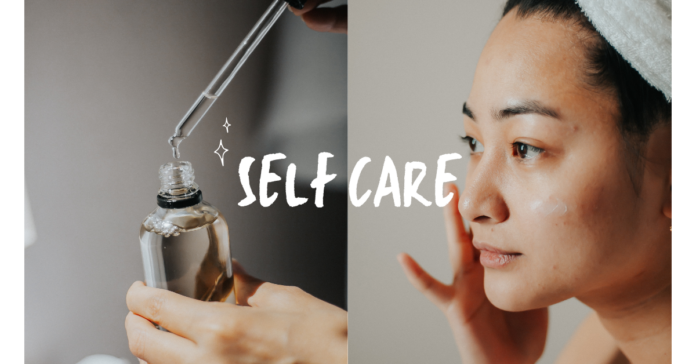Introduction
In today’s fast-paced world, a Daily Self Care Routine is more important than ever, as it helps maintain mental, emotional, and physical well-being, reducing stress and improving overall life satisfaction. However, many people struggle to incorporate self-care into their daily lives. This article will guide you on how to create a self-care routine that is both effective and sustainable.
Understanding Self-Care
What is Self-Care?
A Daily Self Care Routine consists of intentional actions taken to preserve or improve one’s well-being, involving practices that nurture the body, mind, and soul. While self-care looks different for everyone, the key is to find what works best for you.

The Different Dimensions of Self-Care
- Physical Self-Care – Activities that support bodily health, such as exercise, sleep, and nutrition.
- Mental Self-Care – Engaging in activities that stimulate the mind and promote relaxation.
- Emotional Self-Care – Practices that help manage emotions and foster self-compassion.
- Spiritual Self-Care – Activities that provide a sense of purpose and inner peace.
Steps to Create a Personalized Self-Care Routine
1. Assess Your Current Needs
Begin by identifying areas in your life that need improvement. Are you constantly stressed? Do you lack energy? Understanding your needs will help tailor your routine accordingly.
2. Set Realistic Goals
Start small by incorporating achievable habits into your Daily Self Care Routine. For example, if you’re new to meditation, begin with just five minutes a day instead of an hour.
3. Create a Morning Self-Care Ritual
The way you start your day sets the tone for everything else. Consider adding these elements to your morning routine:
- Stretching or light exercise
- Drinking a glass of water
- Practicing gratitude
- Avoiding phone distractions upon waking up
4. Establish an Evening Wind-Down Routine
A relaxing nighttime routine helps improve sleep quality. Some ideas include:
- Journaling or reflecting on the day
- Reading a book
- Taking a warm bath
- Avoiding screens before bedtime
Essential Daily Self-Care Practices
1. Physical Self-Care
- Engage in at least 30 minutes of movement daily, whether it’s walking, yoga, or a workout.
- Prioritize 7-9 hours of quality sleep.
- Maintain a balanced diet rich in whole foods.
2. Mental Self-Care
- Practice mindfulness or meditation to reduce stress.
- Read a book or listen to a podcast that stimulates your mind.
- Write in a journal to organize your thoughts.
3. Emotional Self-Care
- Express gratitude daily by listing three things you’re thankful for.
- Use positive affirmations to boost confidence and self-worth.
- Stay connected with friends and family for emotional support.
4. Spiritual Self-Care
- Meditate or pray to cultivate inner peace.
- Spend time in nature to recharge your mind and body.
- Engage in activities that align with your values and passions.
Self-Care and Time Management
Finding Time for Self-Care
Many people feel too busy for self-care, but small adjustments can make a difference. Try:
- Waking up 15 minutes earlier for a morning ritual.
- Incorporating self-care into existing habits (e.g., listening to calming music while commuting).
- Setting reminders to take breaks throughout the day.

Prioritizing Self-Care Without Guilt
Self-care is not selfish—it’s necessary. Remind yourself that taking care of your well-being allows you to show up better for others.
Common Barriers to Self-Care and How to Overcome Them
1. Lack of Time
If your schedule is packed, make your Daily Self Care Routine simple by integrating self-care into daily activities, like deep breathing while working or stretching during TV time.
2. Feeling Guilty About Taking Time for Yourself
Understand that self-care improves productivity and mental health. Consider it an investment rather than a luxury.
3. Financial Constraints
A Daily Self Care Routine doesn’t have to be expensive—free activities like meditation, walking in nature, and journaling can be just as effective.
4. Overwhelm from Too Many Self-Care Options
Start your Daily Self Care Routine with one or two simple practices and gradually expand as you become more comfortable.
Self-Care Routine Example
Here’s a simple self-care routine you can adapt:
Morning:
- Drink a glass of water
- Stretch for 5-10 minutes
- Write three things you’re grateful for
- Avoid social media for the first hour of your day
Afternoon:
- Take a short walk outside
- Listen to a calming playlist
- Eat a nutritious meal
Evening:
- Write in a journal
- Practice deep breathing exercises
- Read for 10-15 minutes
- Get 7-9 hours of sleep
Conclusion
Creating a Daily Self Care Routine is essential for maintaining mental, emotional, and physical well-being. By setting realistic goals, prioritizing your Daily Self Care Routine, and overcoming common barriers, you can establish a sustainable practice that enhances your quality of life.
For more self-care tips, visit Article Table.
Related Resources:
For additional insights on wellness and self-care, check out Sunray Click.
